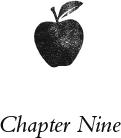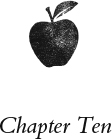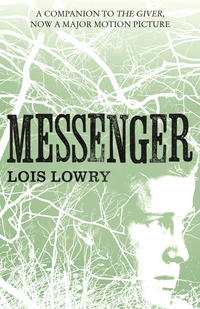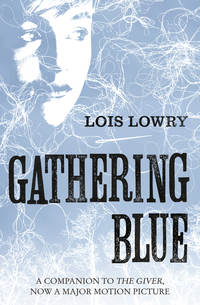
Полная версия
The Giver, Gathering Blue, Messenger, Son
“But the Receiver-in-training cannot be observed, cannot be modified. That is stated quite clearly in the rules. He is to be alone, apart, while he is prepared by the current Receiver for the job which is the most honoured in our community.”
Alone? Apart? Jonas listened with increasing unease.
“Therefore the selection must be sound. It must be a unanimous choice of the Committee. They can have no doubts, however fleeting. If, during the process, an Elder reports a dream of uncertainty, that dream has the power to set a candidate aside instantly.
“Jonas was identified as a possible Receiver many years ago. We have observed him meticulously. There were no dreams of uncertainty.
“He has shown all of the qualities that a Receiver must have.”
With her hand still firmly on his shoulder, the Chief Elder listed the qualities.
“Intelligence,” she said. “We are all aware that Jonas has been a top student throughout his school days.
“Integrity,” she said next. “Jonas has, like all of us, committed minor transgressions.” She smiled at him. “We expect that. We hoped, also, that he would present himself promptly for chastisement, and he has always done so.
“Courage,” she went on. “Only one of us here today has ever undergone the rigorous training required of a Receiver. He, of course, is the most important member of the Committee: the current Receiver. It was he who reminded us, again and again, of the courage required.
“Jonas,” she said, turning to him, but speaking in a voice that the entire community could hear, “the training required of you involves pain. Physical pain.”
He felt fear flutter within him.
“You have never experienced that. Yes, you have scraped your knees in falls from your bicycle. Yes, you crushed your finger in a door last year.”
Jonas nodded, agreeing, as he recalled the incident, and its accompanying misery.
“But you will be faced, now,” she explained gently, “with pain of a magnitude that none of us here can comprehend because it is beyond our experience. The Receiver himself was not able to describe it, only to remind us that you would be faced with it, that you would need immense courage. We cannot prepare you for that.
“But we feel certain that you are brave,” she said to him.
He did not feel brave at all. Not now.
“The fourth essential attribute,” the Chief Elder said, “is wisdom. Jonas has not yet acquired that. The acquisition of wisdom will come through his training.
“We are convinced that Jonas has the ability to acquire wisdom. That is what we looked for.
“Finally, the Receiver must have one more quality, and it is one which I can only name, but not describe. I do not understand it. You members of the community will not understand it, either. Perhaps Jonas will, because the current Receiver has told us that Jonas already has this quality. He calls it the Capacity to See Beyond.”
The Chief Elder looked at Jonas with a question in her eyes. The audience watched him, too. They were silent.
For a moment he froze, consumed with despair. He didn’t have it, the whatever-she-had-said. He didn’t know what it was. Now was the moment when he would have to confess, to say, “No, I don’t. I can’t,” and throw himself on their mercy, ask their forgiveness, to explain that he had been wrongly chosen, that he was not the right one at all.
But when he looked out across the crowd, the sea of faces, the thing happened again. The thing that had happened with the apple.
They changed.
He blinked, and it was gone. His shoulders straightened slightly. Briefly he felt a tiny sliver of sureness for the first time.
She was still watching him. They all were.
“I think it’s true,” he told the Chief Elder and the community. “I don’t understand it yet. I don’t know what it is. But sometimes I see something. And maybe it’s beyond.”
She took her arm from his shoulders.
“Jonas,” she said, speaking not to him alone but to the entire community of which he was a part, “you will be trained to be our next Receiver of Memory. We thank you for your childhood.”
Then she turned and left the stage, left him there alone, standing and facing the crowd, which began spontaneously the collective murmur of his name.
“Jonas.” It was a whisper at first: hushed, barely audible. “Jonas. Jonas.”
Then louder, faster. “JONAS. JONAS. JONAS.”
With the chant, Jonas knew, the community was accepting him and his new role, giving him life, the way they had given it to the newchild Caleb. His heart swelled with gratitude and pride.
But at the same time he was filled with fear. He did not know what his selection meant. He did not know what he was to become.
Or what would become of him.

NOW, FOR THE first time in his twelve years of life, Jonas felt separate, different. He remembered what the Chief Elder had said: that his training would be alone and apart.
But his training had not yet begun and already, upon leaving the Auditorium, he felt the apartness. Holding the folder she had given him, he made his way through the throng, looking for his family unit and for Asher. People moved aside for him. They watched him. He thought he could hear whispers.
“Ash!” he called, spotting his friend near the rows of bicycles. “Ride back with me?”
“Sure.” Asher smiled, his usual smile, friendly and familiar. But Jonas felt a moment of hesitation from his friend, an uncertainty.
“Congratulations,” Asher said.
“You too,” Jonas replied. “It was really funny, when she told about the smacks. You got more applause than almost anybody else.”
The other new Twelves clustered nearby, placing their folders carefully into the carrying containers on the backs of the bikes. In each dwelling tonight they would be studying the instructions for the beginning of their training. Each night for years the children had memorised the required lessons for school, often yawning with boredom. Tonight they would all begin eagerly to memorise the rules for their adult Assignments.
“Congratulations, Asher!” someone called. Then that hesitation again. “You too, Jonas!”
Asher and Jonas responded with congratulations to their groupmates. Jonas saw his parents watching him from the place where their own bicycles were waiting. Lily had already been strapped into her seat.
He waved. They waved back, smiling, but he noticed that Lily was watching him solemnly, her thumb in her mouth.
He rode directly to his dwelling, exchanging only small jokes and unimportant remarks with Asher.
“See you in the morning, Recreation Director!” he called, dismounting by his door as Asher continued on.
“Right! See you!” Asher called back. Once again, there was just a moment when things weren’t quite the same, weren’t quite as they had always been through the long friendship. Perhaps he had imagined it. Things couldn’t change, with Asher.
The evening meal was quieter than usual. Lily chattered about her plans for volunteer work; she would begin, she said, at the Nurturing Centre, since she was already an expert at feeding Gabriel.
“I know,” she added quickly, when her father gave her a warning glance, “I won’t mention his name. I know I’m not supposed to know his name.
“I can’t wait for tomorrow to come,” she said happily.
Jonas sighed uneasily. “I can,” he muttered.
“You’ve been greatly honoured,” his mother said. “Your father and I are very proud.”
“It’s the most important job in the community,” Father said.
“But just the other night, you said that the job of making Assignments was the most important!”
Mother nodded. “This is different. It’s not a job, really. I never thought, never expected—” She paused. “There’s only one Receiver.”
“But the Chief Elder said that they had made a selection before, and that it failed. What was she talking about?”
Both of his parents hesitated. Finally his father described the previous selection. “It was very much as it was today, Jonas – the same suspense, as one Eleven had been passed over when the Assignments were given. Then the announcement, when they singled out the one—”
Jonas interrupted. “What was his name?”
His mother replied, “Her, not his. It was a female. But we are never to speak the name, or to use it again for a newchild.”
Jonas was shocked. A name designated Not-to-Be-Spoken indicated the highest degree of disgrace.
“What happened to her?” he asked nervously.
But his parents looked blank. “We don’t know,” his father said uncomfortably. “We never saw her again.”
A silence fell over the room. They looked at each other. Finally his mother, rising from the table, said, “You’ve been greatly honoured, Jonas. Greatly honoured.”
Alone in his sleepingroom, prepared for bed, Jonas opened his folder at last. Some of the other Twelves, he had noticed, had been given folders thick with printed pages. He imagined Benjamin, the scientific male in his group, beginning to read pages of rules and instructions with relish. He pictured Fiona smiling her gentle smile as she bent over the lists of duties and methods that she would be required to learn in the days to come.
But his own folder was startlingly close to empty. Inside there was only a single printed sheet. He read it twice.
JONAS
RECEIVER OF MEMORY
1 Go immediately at the end of school hours each day to the Annexe entrance behind the House of the Old and present yourself to the attendant.
2 Go immediately to your dwelling at the conclusion of Training Hours each day.
3 From this moment you are exempted from rules governing rudeness. You may ask any question of any citizen and you will receive answers.
4 Do not discuss your training with any other member of the community, including parents and Elders.
5 From this moment you are prohibited from dream-telling.
6 Except for illness or injury unrelated to your training, do not apply for any medication.
7 You are not permitted to apply for release.
8 You may lie.
Jonas was stunned. What would happen to his friendships? His mindless hours playing ball, or riding his bike along the river? Those had been happy and vital times for him. Were they to be completely taken from him, now? The simple logistic instructions – where to go, and when – were expected. Every Twelve had to be told, of course, where and how and when to report for training. But he was a little dismayed that his schedule left no time, apparently, for recreation.
The exemption from rudeness startled him. Reading it again, however, he realised that it didn’t compel him to be rude; it simply allowed him the option. He was quite certain he would never take advantage of it. He was so completely, so thoroughly accustomed to courtesy within the community that the thought of asking another citizen an intimate question, of calling someone’s attention to an area of awkwardness, was unnerving.
The prohibition of dream-telling, he thought, would not be a real problem. He dreamed so rarely that the dream-telling did not come easily to him anyway, and he was glad to be excused from it. He wondered briefly, though, how to deal with it at the morning meal. What if he did dream – should he simply tell his family unit, as he did so often, anyway, that he hadn’t? That would be a lie. Still, the final rule said … well, he wasn’t quite ready to think about the final rule on the page.
The restriction of medication unnerved him. Medication was always available to citizens, even to children, through their parents. When he had crushed his finger in the door, he had quickly, gasping into the speaker, notified his mother; she had hastily requisitioned relief-of-pain medication which had promptly been delivered to his dwelling. Almost instantly the excruciating pain in his hand had diminished to the throb which was, now, all he could recall of the experience.
Re-reading rule number 6, he realised that a crushed finger fell into the category of “unrelated to training”. So if it ever happened again – and he was quite certain it wouldn’t; he had been very careful near heavy doors since the accident! – he could still receive medication.
The pill he took now, each morning, was also unrelated to training. So he would continue to receive the pill.
But he remembered uneasily what the Chief Elder had said about the pain that would come with his training. She had called it indescribable.
Jonas swallowed hard, trying without success to imagine what such pain might be like, with no medication at all. But it was beyond his comprehension.
He felt no reaction to rule number 7 at all. It had never occurred to him that under any circumstances, ever, he might apply for release.
Finally he steeled himself to read the final rule again. He had been trained since earliest childhood, since his earliest learning of language, never to lie. It was an integral part of the learning of precise speech. Once, when he had been a Four, he had said, just prior to the midday meal at school, “I’m starving.”
Immediately he had been taken aside for a brief private lesson in language precision. He was not starving, it was pointed out. He was hungry. No one in the community was starving, had ever been starving, would ever be starving. To say “starving” was to speak a lie. An unintentioned lie, of course. But the reason for precision of language was to ensure that unintentional lies were never uttered. Did he understand that? they asked him. And he had.
He had never, within his memory, been tempted to lie. Asher did not lie. Lily did not lie. His parents did not lie. No one did. Unless …
Now Jonas had a thought that he had never had before. This new thought was frightening. What if others – adults – had, upon becoming Twelves, received in their instructions the same terrifying sentence?
What if they had all been instructed: You may lie?
His mind reeled. Now, empowered to ask questions of utmost rudeness – and promised answers – he could, conceivably (though it was almost unimaginable), ask someone, some adult, his father perhaps: “Do you lie?”
But he would have no way of knowing if the answer he received were true.

“I GO IN here, Jonas,” Fiona told him when they reached the front door of the House of the Old after parking their bicycles in the designated area.
“I don’t know why I’m nervous,” she confessed. “I’ve been here so often before.” She turned her folder over in her hands.
“Well, everything’s different now,” Jonas reminded her.
“Even the nameplates on our bikes,” Fiona laughed. During the night the nameplate of each new Twelve had been removed by the Maintenance Crew and replaced with the style that indicated citizen-in-training.
“I don’t want to be late,” she said hastily, and started up the steps. “If we finish at the same time, I’ll ride home with you.”
Jonas nodded, waved to her, and headed around the building towards the Annexe, a small wing attached to the back. He certainly didn’t want to be late for his first day of training, either.
The Annexe was very ordinary, its door unremarkable. He reached for the heavy handle, then noticed a buzzer on the wall. So he buzzed instead.
“Yes?” The voice came through a small speaker above the buzzer.
“It’s, uh, Jonas. I’m the new – I mean—”
“Come in.” A click indicated that the door had been unlatched.
The lobby was very small and contained only a desk at which a female Attendant sat working on some papers. She looked up when he entered; then, to his surprise, she stood. It was a small thing, the standing; but no one had ever stood automatically to acknowledge Jonas’s presence before.
“Welcome, Receiver of Memory,” she said respectfully.
“Oh, please,” he replied uncomfortably. “Call me Jonas.”
She smiled, pushed a button, and he heard a click that unlocked the door to her left. “You may go right on in,” she told him.
Then she seemed to notice his discomfort and to realise its origin. No doors in the community were locked, ever. None that Jonas knew of, anyway.
“The locks are simply to insure the Receiver’s privacy because he needs concentration,” she explained. “It would be difficult if citizens wandered in, looking for the Department of Bicycle Repair, or something.”
Jonas laughed, relaxing a little. The woman seemed very friendly, and it was true – in fact it was a joke throughout the community – that the Department of Bicycle Repair, an unimportant little office, was relocated so often that no one ever knew where it was.
“There is nothing dangerous here,” she told him. “But,” she added, glancing at the wall clock, “he doesn’t like to be kept waiting.”
Jonas hurried through the door and found himself in a comfortably furnished living area. It was not unlike his own family unit’s dwelling. Furniture was standard throughout the community: practical, sturdy, the function of each piece clearly defined. A bed for sleeping. A table for eating. A desk for studying.
All of those things were in this spacious room, though each was slightly different from those in his own dwelling. The fabrics on the upholstered chairs and sofa were slightly thicker and more luxurious; the table legs were not straight like those at home, but slender and curved, with a small carved decoration at the foot. The bed, in an alcove at the far end of the room, was draped with a splendid cloth embroidered over its entire surface with intricate designs.
But the most conspicuous difference was the books. In his own dwelling, there were the necessary reference volumes that each household contained: a dictionary, and the thick community volume which contained descriptions of every office, factory, building and committee. And the Book of Rules, of course.
The books in his own dwelling were the only books that Jonas had ever seen. He had never known that other books existed.
But this room’s walls were completely covered by bookcases, filled, which reached to the ceiling. There must have been hundreds – perhaps thousands – of books, their titles embossed in shiny letters.
Jonas stared at them. He couldn’t imagine what the thousands of pages contained. Could there be rules beyond the rules that governed the community? Could there be more descriptions of offices and factories and committees?
He had only a second to look around because he was aware that the man sitting in a chair beside the table was watching him. Hastily he moved forward, stood before the man, bowed slightly and said, “I’m Jonas.”
“I know. Welcome, Receiver of Memory.”
Jonas recognised the man. He was the Elder who had seemed separate from the others at the Ceremony, though he was dressed in the same special clothing that only Elders wore.
Jonas looked self-consciously into the pale eyes that mirrored his own.
“Sir, I apologise for my lack of understanding …”
He waited, but the man did not give the standard accepting-of-apology response.
After a moment, Jonas went on, “But I thought – I mean I think,” he corrected, reminding himself that if precision of language were ever to be important, it was certainly important now, in the presence of this man, “that you are the Receiver of Memory. I’m only, well, I was only assigned, I mean selected, yesterday. I’m not anything at all. Not yet.”
The man looked at him thoughtfully, silently. It was a look that combined interest, curiosity, concern, and perhaps a little sympathy as well.
Finally he spoke. “Beginning today, this moment, at least to me, you are the Receiver.
“I have been the Receiver for a long time. A very, very long time. You can see that, can’t you?”
Jonas nodded. The man was wrinkled, and his eyes, though piercing in their unusual lightness, seemed tired. The flesh around them was darkened into shadowed circles.
“I can see that you are very old,” Jonas responded with respect. The Old were always given the highest respect.
The man smiled. He touched the sagging flesh on his own face with amusement. “I am not, actually, as old as I look,” he told Jonas. “This job has aged me. I know I look as if I should be scheduled for release very soon. But actually I have a good deal of time left.
“I was pleased, though, when you were selected. It took them a long time. The failure of the previous selection was ten years ago, and my energy is starting to diminish. I need what strength I have remaining for your training. We have hard and painful work to do, you and I.
“Please sit down,” he said, and gestured towards the nearby chair. Jonas lowered himself on to the soft cushioned seat.
The man closed his eyes and continued speaking. “When I became a Twelve, I was selected, as you were. I was frightened, as I’m sure you are.” He opened his eyes for a moment and peered at Jonas, who nodded.
The eyes closed again. “I came to this very room to begin my training. It was such a long time ago.
“The previous Receiver seemed just as old to me as I do to you. He was just as tired as I am today.”
He sat forward suddenly, opened his eyes and said, “You may ask questions. I have so little experience in describing this process. It is forbidden to talk of it.”
“I know, sir. I have read the instructions,” Jonas said.
“So I may neglect to make things as clear as I should.” The man chuckled. “My job is important and has enormous honour. But that does not mean I am perfect, and when I tried before to train a successor, I failed. Please ask any questions that will help you.”
In his mind, Jonas had questions. A thousand. A million questions. As many questions as there were books lining the walls. But he did not ask one, not yet.
The man sighed, seeming to put his thoughts in order. Then he spoke again. “Simply stated,” he said, “although it’s not really simple at all, my job is to transmit to you all the memories I have within me. Memories of the past.”
“Sir,” Jonas said tentatively, “I would be very interested to hear the story of your life, and to listen to your memories.
“I apologise for interrupting,” he added quickly.
The man waved his hand impatiently. “No apologies in this room. We haven’t time.”
“Well,” Jonas went on, uncomfortably aware that he might be interrupting again, “I am really interested, I don’t mean that I’m not. But I don’t exactly understand why it’s so important. I could do some adult job in the community, and in my recreation time I could come and listen to the stories from your childhood. I’d like that. Actually,” he added, “I’ve done that already, in the House of the Old. The Old like to tell about their childhoods, and it’s always fun to listen.”
The man shook his head. “No, no,” he said. “I’m not being clear. It’s not my past, not my childhood that I must transmit to you.”
He leaned back, resting his head against the back of the upholstered chair. “It’s the memories of the whole world,” he said with a sigh. “Before you, before me, before the previous Receiver, and generations before him.”
Jonas frowned. “The whole world?” he asked. “I don’t understand. Do you mean not just us? Not just the community? Do you mean Elsewhere, too?” He tried, in his mind, to grasp the concept. “I’m sorry, sir. I don’t understand exactly. Maybe I’m not smart enough. I don’t know what you mean when you say ‘the whole world’ or ‘generations before him’. I thought there was only us. I thought there was only now.”
“There’s much more. There’s all that goes beyond – all that is Elsewhere – and all that goes back, and back, and back. I received all of those, when I was selected. And here in this room, all alone, I re-experience them again and again. It is how wisdom comes. And how we shape our future.”









